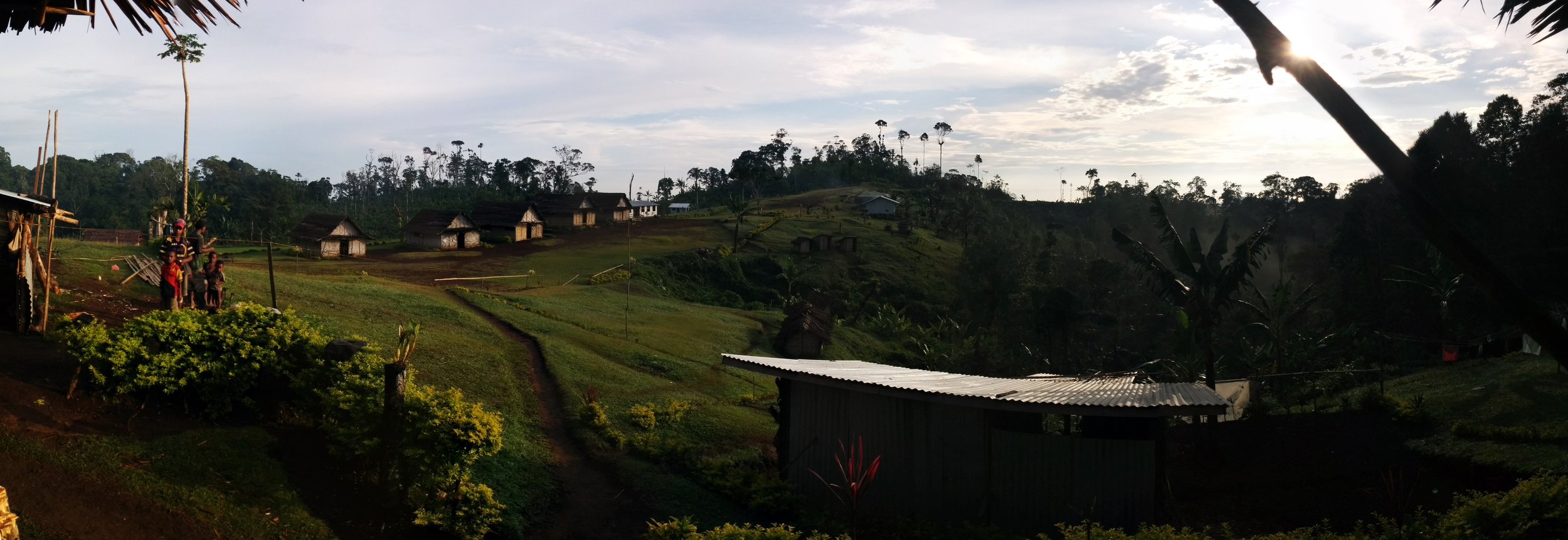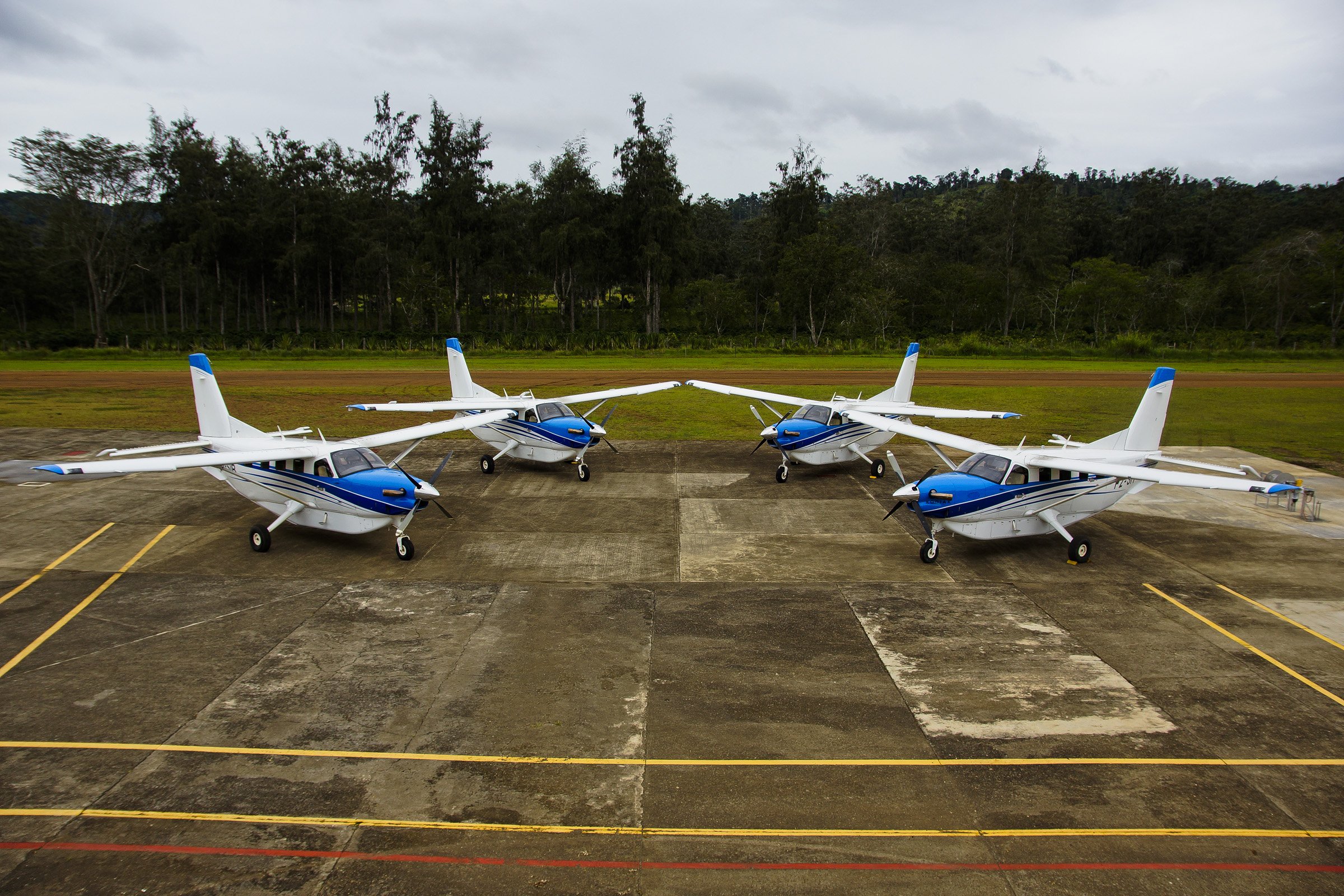
Pamosu Translation Project
Therefore glorify Yahweh in the east, the name of Yahweh the God of Israel in the coastlands of the sea. -Isaiah 24:15
Can you imagine?
Imagine trying to follow Christ without the Bible. Maybe you can't read, or the Bible isn't written in your language. To you, the Bible is a blank page and you have only the words of other people to tell you what God has said. What would you do if one person told you something and another person told you something entirely different? How would you know who to believe? What could you compare their words to?
Or imagine someone told you to just learn Greek if you wanted to read the Bible. Would you bother to learn Greek or Hebrew and learn to read and write in the language when you can't even read or write in your own? Would you even have the resources to learn it?
Now imagine that you spend most of your time hiking up and down mountains. You plant and harvest food for your family. Your only electricity comes from small solar panels to power devices that cost months worth of pay. You have to plant extra gardens for cash crops you have to carry 3 days to sell in small quantities at a time. This meager equipment degrades quickly and you don't really know how to take care of it anyhow. Would you have the time, resources, or inclination to either learn to read and write in a language that already has the Bible or attempt to translate the Bible into your own?
Now ask yourself, is there anything we can do to change this situation?

The Plan
Our ultimate goal is to have a translation of the Bible in the Pamosu language that people actually use to inform their lives about God and themselves. This plan includes 3 main categories of activities.
Bible Translation
Every language is unique and cannot be replaced in the hearts and minds of its speakers. When a person lives across the world we, as Christians, send missionaries to their location to bring them the Gospel. We don't require them to come to our home country to hear the Gospel. Likewise, we shouldn't expect other languages to come to our language or any other language they don't understand well to be able to hear God's words. That is why we translate the Bible, so we can remove every obstacle and hindrance to the Gospel to change lives, communities, and nations. In short, translation is any time we take words(or any medium of communication) that is not understood and put it in a form that can be understood.

Then I saw another angel flying in midair, and he had the eternal gospel to proclaim to those who live on the earth - to every nation, tribe, language, and people.
- Revelation 14:6
Literacy & Scripture Use
A translation of the Bible is not worth our effort if it is just thrown in the fire and never used. So teaching people to read and write their language is of paramount importance. Just like it is no use to give someone a computer who doesn't know how to care for or use it, we shouldn't just drop a Bible on people's laps if they can't read it. Not everyone will immediately see the value of reading and writing, especially in such remote communities who spend most of their time growing their own food, like those in which the Pamosu live. So we also have plans to include other methods of distribution including various means of audio from standalone devices to phone apps. Eventually initiatives including video are part of our dreams for the Pamosu speakers. This aspect of our project also has other impacts beyond use with scripture as a literate people have other opportunities as well.

For you this whole vision is nothing but words sealed in a scroll. And if you give the scroll to someone who can read, and say, “Read this, please,” they will answer, “I can’t; it is sealed.” Or if you give the scroll to someone who cannot read, and say, “Read this, please,” they will answer, “I don’t know how to read.”
- Isaiah 29:11-12
Capacity Building
The final aspect of our project is equally as important to the success of this work as the other two. As we start to build up the spiritual capacity of the Pamosu speakers with a translation of God's word we also need to enable them to do that work alongside us to best effectuate spiritual and practical change in their communities. Though for centuries people have translated scripture painstakingly with pen and paper, more primitive means of transport, and other means, we now have capabilities in modern society that greatly improve our effectiveness and efficiency. For example, computers are now a regular part of Bible Translation because software and data processing have dramatically increased our ability to study God's word, store our work easily and with less perishable materials in multiple locations very quickly, and a host of other advantages. To read more about what initiatives we have in mind to increase the capacity of our team to achieve our purposes, visit the Capacity Building page.











